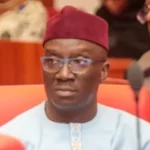One of the biggest contributors to the unjustifiable cost of governance in Nigeria is the excessive number of advisers employed by political officeholders. Such “special advisers” are not experts in any field, nor are they trained to give advice. They are simply sycophantic yes men who agree with anything their principal says in order to keep their job and enjoy the “dividends of democracy”.
The irony is that while money is wasted on special advisers with no benefit to the nation, government doesn’t spend time or money offering much-needed advice services to citizens. Wherever the rights of citizens to protest against bad governance are denied they regress into passive sadness, bottled-up hopelessness, anger, rage, fury, resentment and indignation. Their suppression of emotions makes them susceptible to thoughts of suicide, murder, breakdown of law and order or revolution.
Many political commentators believe that Nigerian political officeholders know they can do whatever they want, and get away with it, because citizens can only grumble and are unable to express open outrage or indignation against poor governance without running afoul of the law.
The end result is that Nigerian political officeholders no longer display any sense of duty towards citizens and have resorted to detaining or brutalising them rather than offering them professional advice on how to solve their problems. Citizens who believe that government does not feel they are entitled to a decent life and see no hope on the horizon either commit murder or suicide.
The ostentatious flaunting of criminal wealth on social media by political officeholders causes disaffection and advertises the reality that Nigerians should not feel entitled to any job or success, because political officeholders are not interested in providing them with the sort of decent life they deserve!
Consequently, an increasing number of Nigerians are resorting to suicide, which according to the World Health Organization, is a global public health problem in which Nigeria is one of the epicenters.
The most common causes of suicide in Nigeria are medical depression, domestic violence, drug addiction, loneliness, or grief from the loss of loved ones. Although according to Section 327 of the Nigerian criminal code suicide is a crime, it is under-reported because it’s considered to be taboo, sinful and caused by evil forces.
Lamentably an increasing number of Nigerians are now committing suicide or murder as a result of pressure from work or lack of it.
Marcel Udeh was arrested in Abia State for killing his jobless son who couldn’t find a job, and wasn’t ready to engage in criminality. The boy simply returned home to eat the last portion of food in the house and in a fit of frustration and rage his father shot him! Marcel blamed “the devil” for victimizing his son, but in truth both he and his son were victims.
Things are only marginally better even for those with jobs. Even as Nigeria’s Bank Chief Executive Officers (CEOs) are feted, basking in inordinate worship for becoming billionaire “banking gurus”, their employees form the single largest group of employed graduates committing suicide.
Bank marketing officers are renowned for committing suicide as a result of high, almost unrealistic monthly sales quotas which must be met. Thirty-two-year-old banker Amarachi Ugochukwu committed suicide within the bank premises leaving a note which in part read, “My figures are low… my mind is messed up… the future doesn’t seem bright at all”.
Undoubtedly there needs to be far more moral consideration by bank CEOs who live lives of luxury and affluence while ignoring reports of their employees committing suicide nationwide due to their inability to cope with workplace pressure.
Ironically many Nigerians who cope with pressures at work cannot cope with pressures in the home. In 2020 a social media video of Mrs Olokobi went viral when her young son repeatedly said to her “Mummy calm down”. While the nation found it funny and laughed, evidently only her young son realized what she was going through. After two more years of struggling to cope she committed suicide in 2023 leaving behind the “mummy calm down boy” and his two siblings.
The government urgently needs to create a Citizens Advice Bureau and employ trained advisers or counsellors to provide free professional advice and counselling to people facing seemingly overbearing problems.
Regrettably, most Nigerians with problems don’t seek counselling but rather go to lawyers, pastors, family members, or police, none of whom are trained in social counselling. In the United Kingdom, 40 per cent of adults contact Citizens Advice during their lifetime, and in 2023 one-third of the nation’s online population visited the Citizens Advice Website for assistance.
The callousness of government actions and the debilitating effects of economic policies have highlighted the need to implement social policies designed to alleviate problems. Citizens must have access to free advice from trained personnel who can foster hope.
Poor mental health doesn’t necessarily entail walking about naked on the streets! If the nation wants to curb public frustration, lawlessness, the attraction of crime, thoughts of revolution and cases of murder or suicide, there is an urgent need for proper counselling.
A plethora of special advisers is not necessary for political office holders who should have known what they are doing before being appointed, the money would be better spent on paying counsellors for citizens who are in urgent need of advice too!

 Join Daily Trust WhatsApp Community For Quick Access To News and Happenings Around You.
Join Daily Trust WhatsApp Community For Quick Access To News and Happenings Around You.


